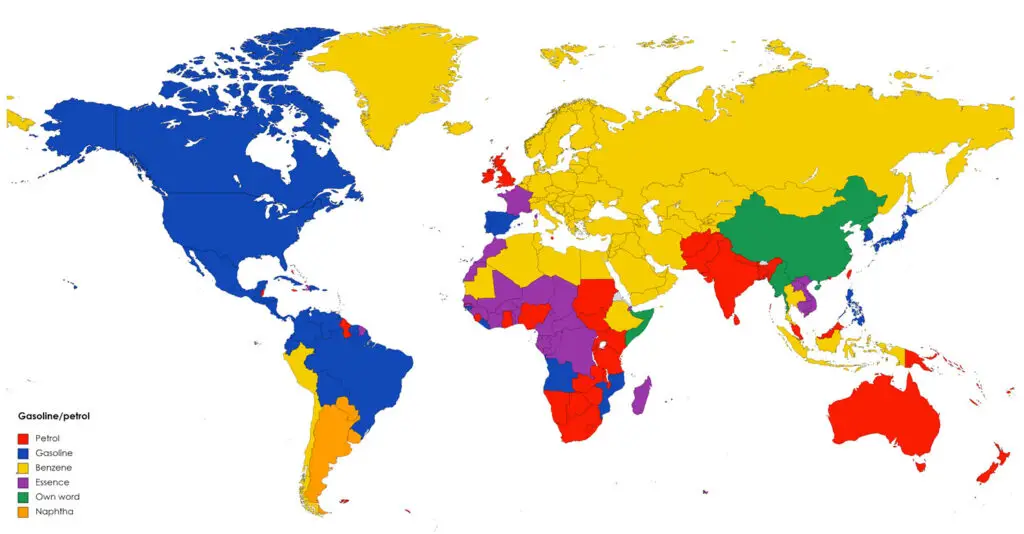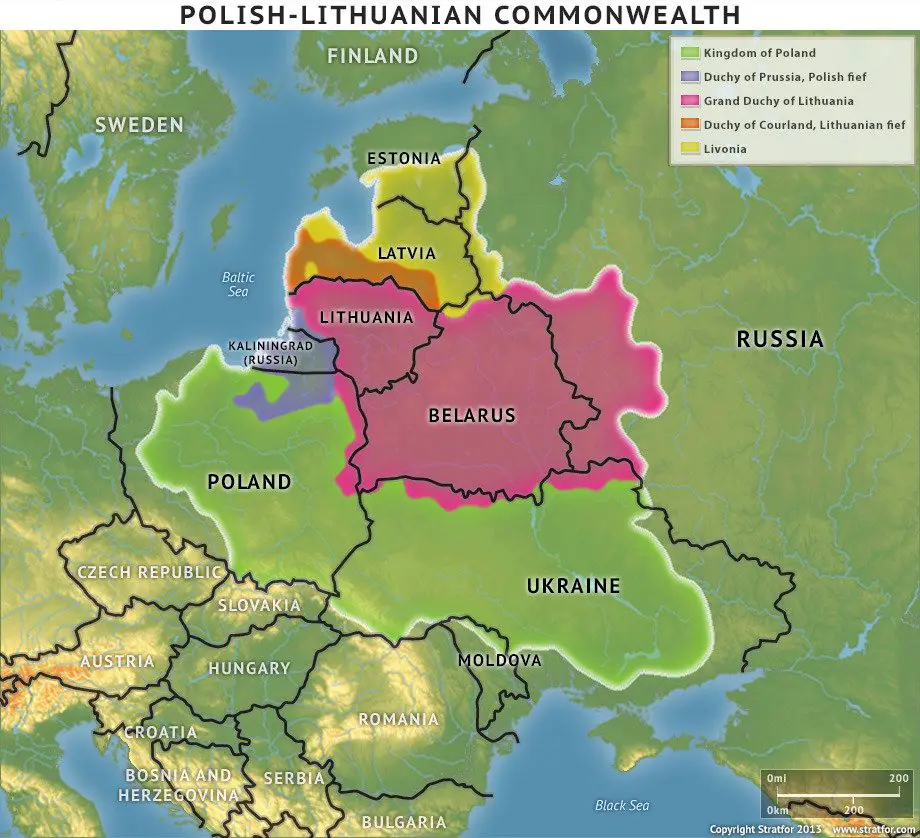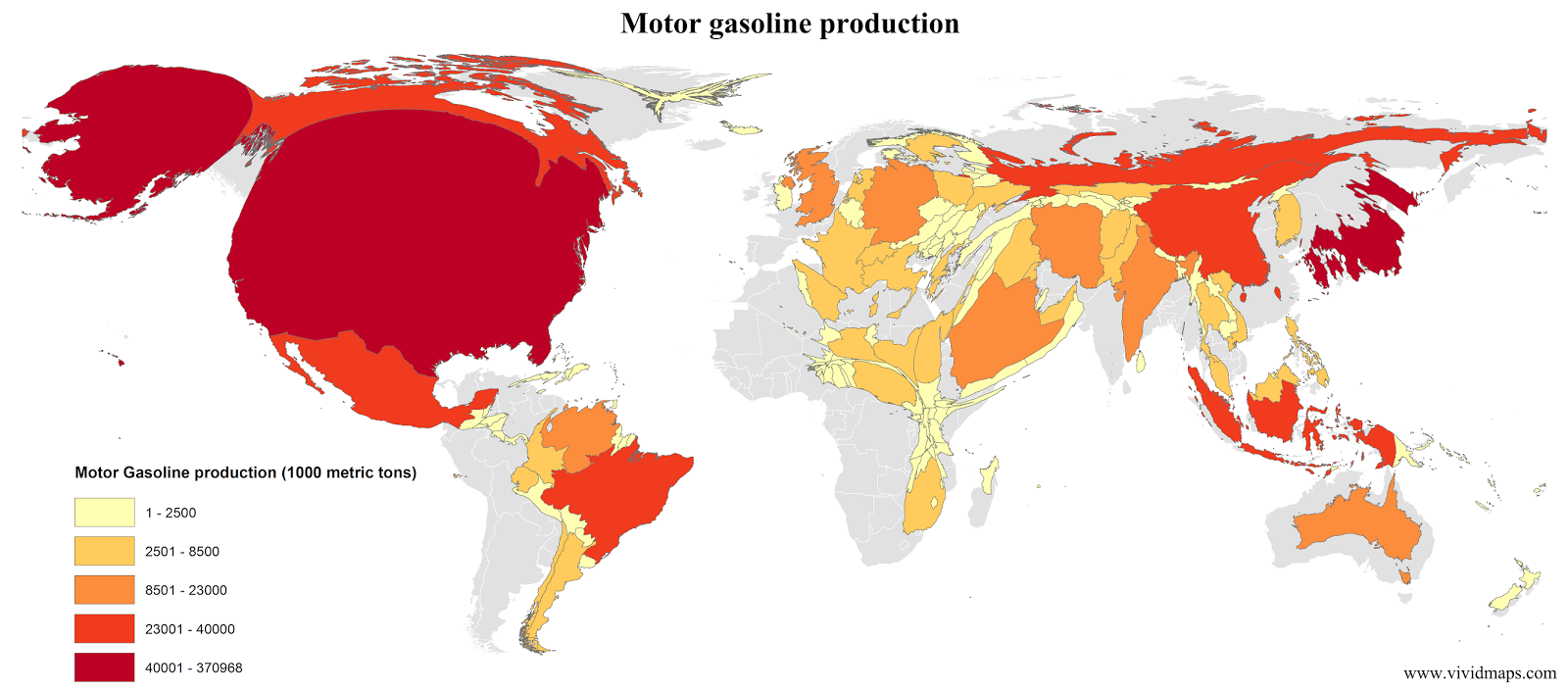Gasoline or Petrol or Essence or Benzene?
In various countries around the world, the terminology for the fuel commonly used in internal combustion engines varies based on their native languages. The most common terms are “gasoline,” “petrol,” “essence,” and “benzene.”
The world map below shows different countries’ usage of gasoline/petrol/essence/benzene based on their native languages.

- Petrol (United Kingdom and Commonwealth Nations): In the United Kingdom and many Commonwealth nations, the preferred term is “petrol.” This word has its roots in the shortening of “petroleum” and has become the standard term in British English.
The word “petroleum” has its origins in Latin and Greek. It comes from the Latin words “petra,” meaning rock, and “oleum,” meaning oil. - Gasoline (United States and Latin countries): In the United States, the widely accepted term for this fuel is “gasoline.” This term has become standard American English usage. The word “gasoline” is also used in Spanish-speaking and Portuguese-speaking countries./
The term “gasoline” finds its roots in the trademark terms “Cazeline” and “Gazeline”. These were stylized spellings and pronunciations derived from Cassell, the surname of British businessman John Cassell. - Benzene (Germany, Arab countries, Eastern Europe, and former Soviet Union countries): The word “benzene” originated from the German term “Benzin,” which was a name given to a highly volatile fraction obtained from the distillation of crude oil. The term was coined in the mid-19th century when benzene, a specific aromatic hydrocarbon, was isolated from this fraction. The name “benzene” reflects its early association with this fraction derived from benzoin resin.
In fact, the word “benzene” has a more complex linguistic history. While the German word “Benzin” played a role in its development, the ultimate origin of the term does have connections to Arabic.
The Arabic word “al-bann” (البن) refers to a specific resin, and it’s believed that this term influenced the naming of benzene due to its aromatic nature. - Essence (French-speaking countries): In French-speaking countries, particularly in Europe and Africa, the term “essence” is commonly used.
The word “essence” has its origins in Latin and Old French. It comes from the Latin word “essentia,” which is a combination of “essens” (being) and the suffix “-tia” denoting quality. In Old French, it evolved into “essence,” maintaining its fundamental meaning of the intrinsic nature or indispensable quality of something. - Naphtha (Argentina and Uruguay): The term “naphtha” is used mainly in several South American countries.
The word “naphtha” has its origins in ancient Greek. It is derived from the Greek word “naphthen,” meaning “bitumen” or “pitch.” Over time, the term evolved to describe a range of volatile liquid hydrocarbons, including those obtained from crude oil. Today, “naphtha” is commonly used to refer to a light, liquid mixture of hydrocarbons that can be further processed in refining or used as a solvent in various industrial applications.
To learn more about the origins of the words, consider the following books:








